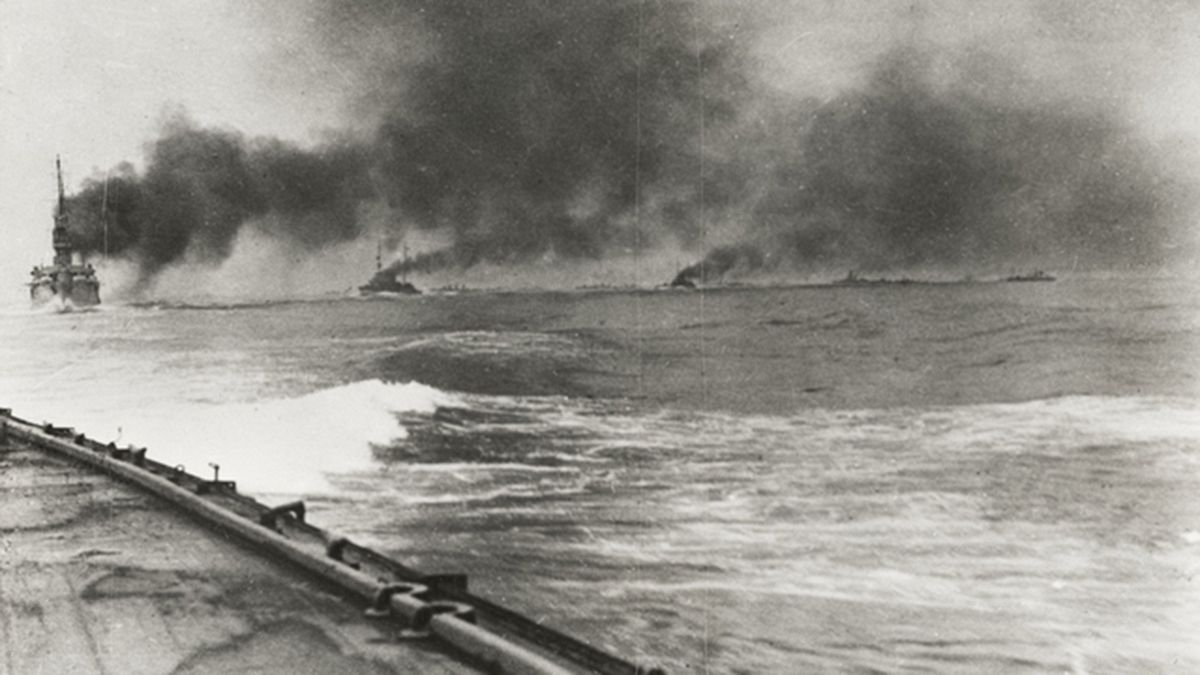1916: May 31
In May of 1916 the entire German High Seas Fleet had recently been dispatched to continue attacks on the British coast. What the German commander didn’t know was that his coded messages had been broken and the British Grand Fleet was mobilising for an attack.
Both fleets faced off and a battle of naval strategy and technical manoeuvres began. The Battle of Jutland was to become the largest naval battle of the First World War, engaging some 100,000 men on 250 ships. By the time the German fleet retreated under the cover of darkness on June 1 the Germans had lost 11 ships and suffered 3,058 casualties. The British had lost 14 ships and suffered 6,784 casualties.
The battle – which had been predicted as a big win for the British navy – was claimed as a victory by the Germans, however the end result was not so clear cut. Although the British had lost more men and boats, the German fleet had suffered heavy damage and by the following month only 10 of its ships were ready to leave port again. The British, on the other hand, could have put 23 ships to sea. The result of the battle had disappointed the British but in the end it was the German navy that suffered most. No further attempts to break the Allied blockade were made.


